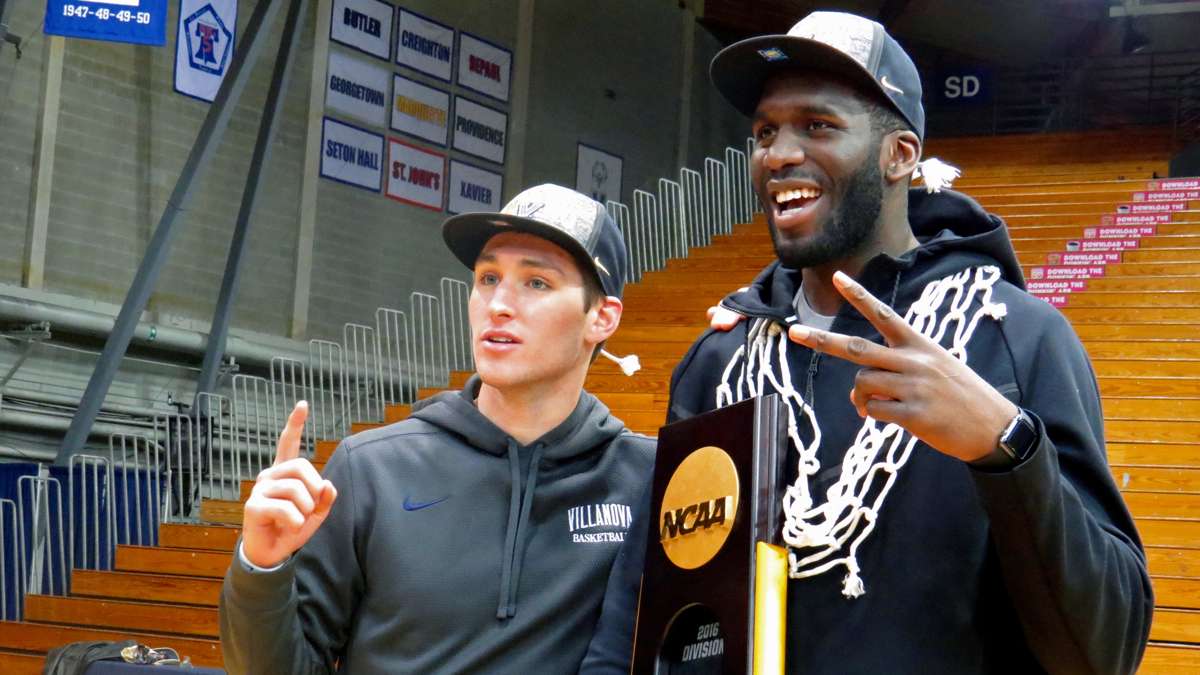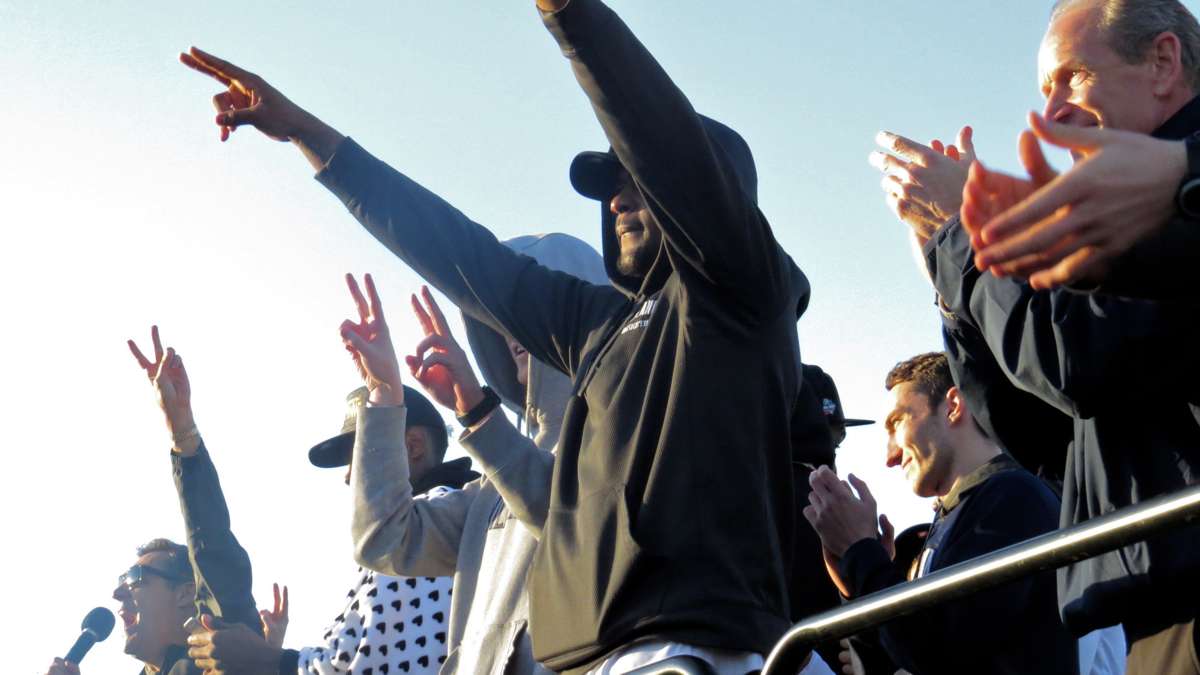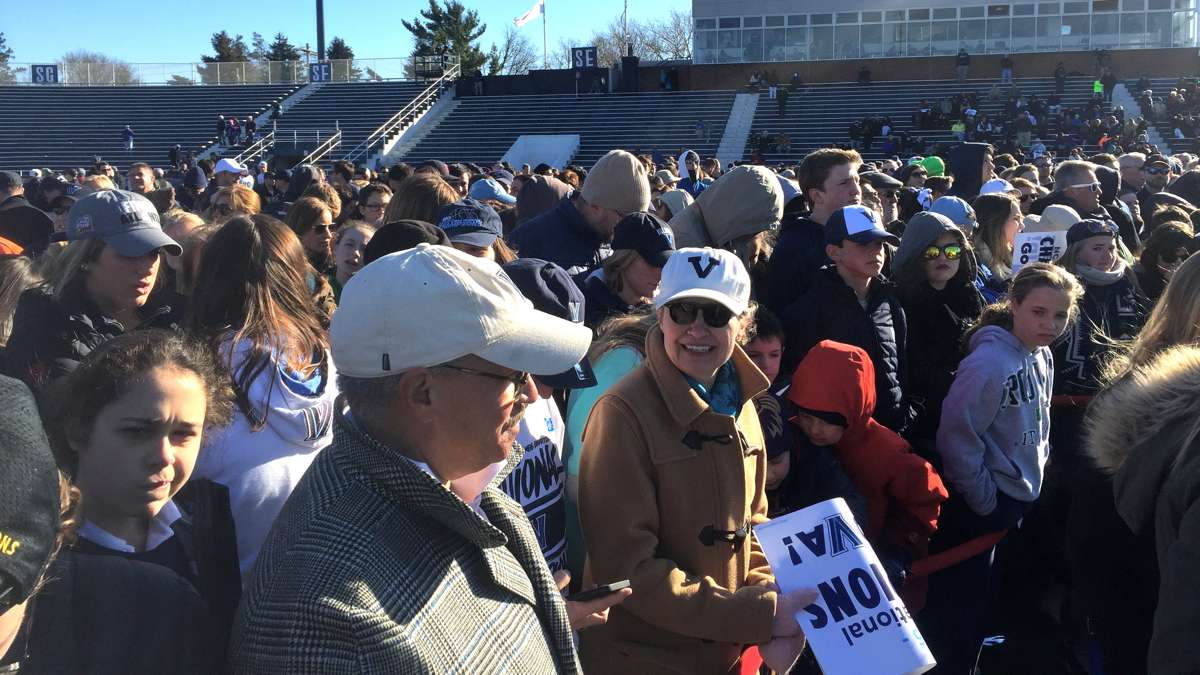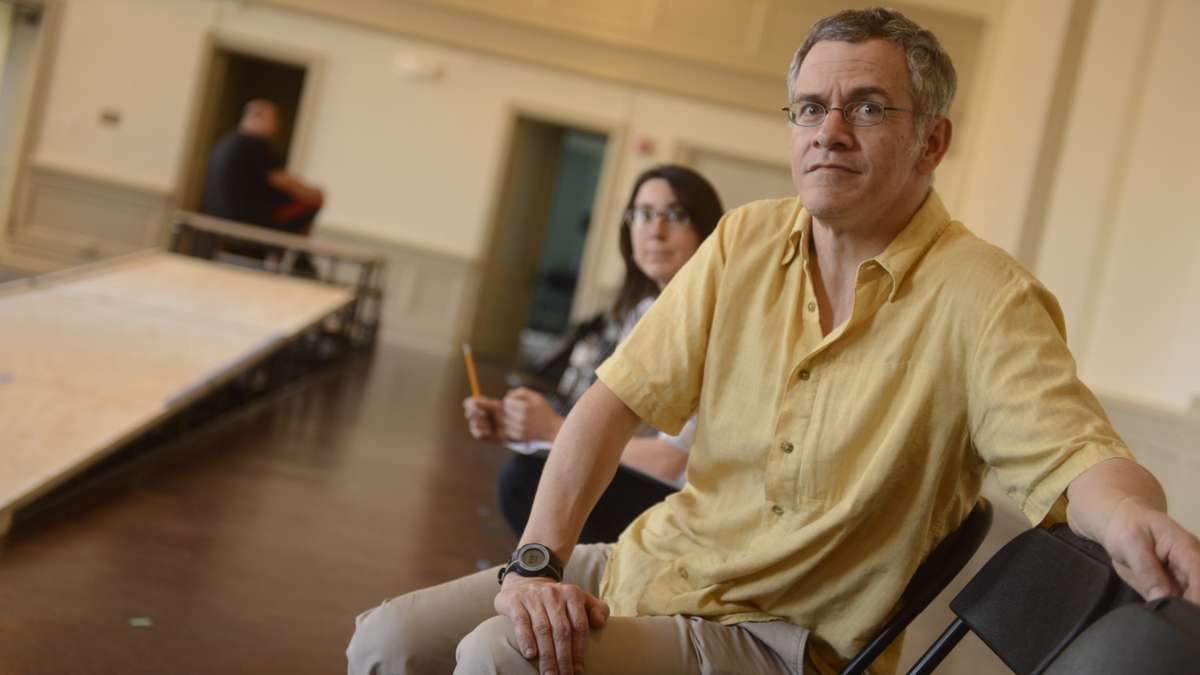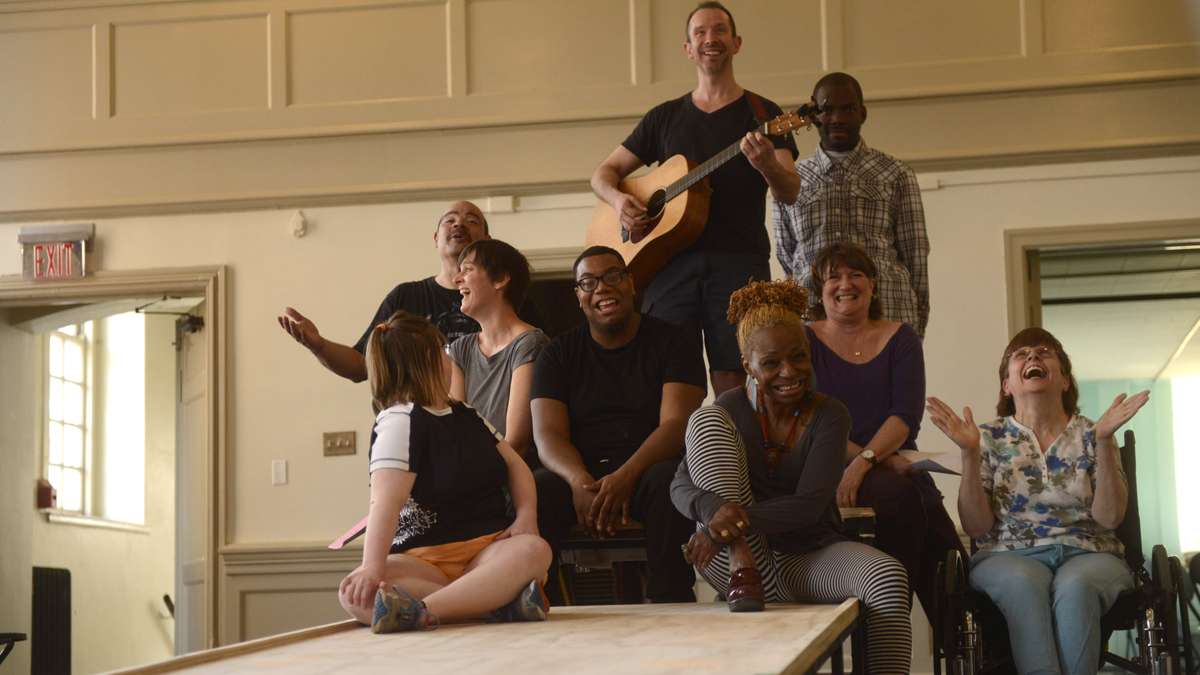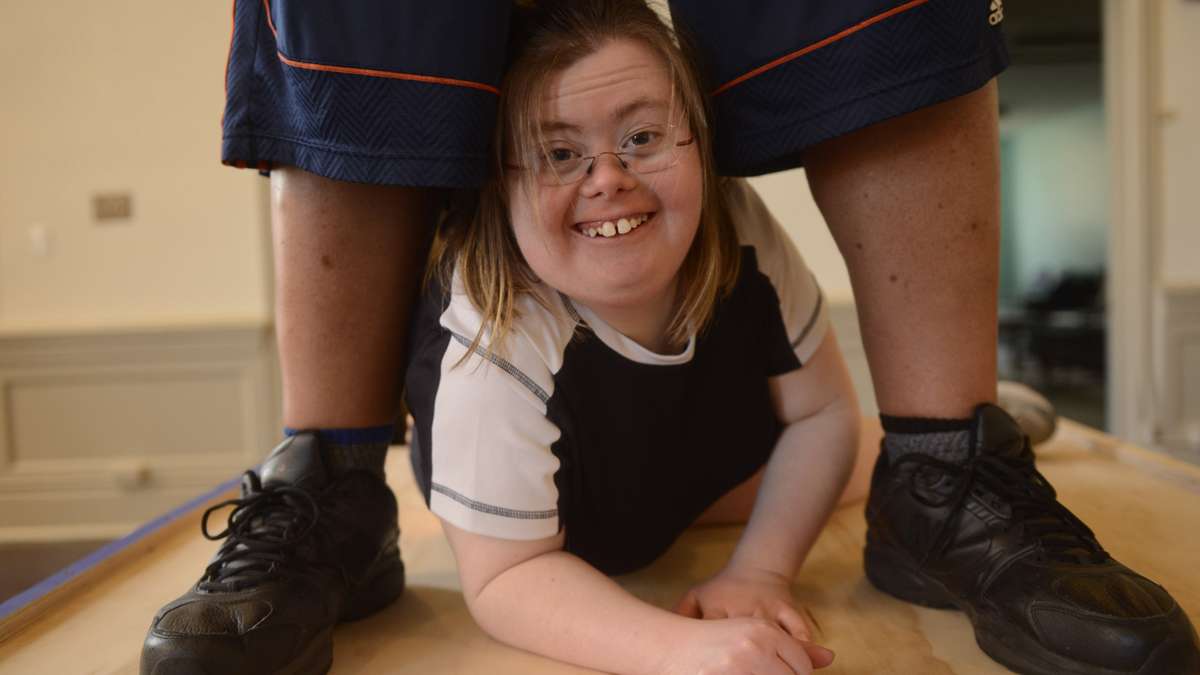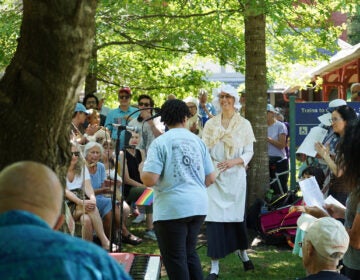Eroding the divide between ‘able’ and ‘disabled’ with atypical play
Theater director David Bradley has a long history of making theater that crosses boundaries. But in “A Fierce Kind of Love,” a new play produced by the Temple University Institute on Disabilities, about Pennsylvania’s 60-year-old intellectual disabilities rights movement, Bradley found himself crossing even more.
For one thing, the Temple institute isn’t an arts organization. “So they’re working in a new way,” Bradley says. “They’re being brave to step into a new way of exploring the disabilities community.”
For another, the cast blends professional actors with nonprofessional actors who have intellectual disabilities.
Simply being people
That blending of pros and newbies is not a first for Bradley, who began his career that way. “Right out of college, I founded the Open Door Theater with friends of mine,” he says. “We worked in rural communities in Pennsylvania. We’d be in residence in these small towns, both doing our own work and doing work with people in the community. That’s always been something I’ve loved in doing theater.”
But he continues to pay it forward in “Fierce Kind of Love,” where four cast members are community performers with dual roles — telling their own stories as well as playing the role of important figures in the movement. In what might be a first for some theater-goers, cast members interact directly with the audience, starting from the moment they introduce themselves. “I love their bravery and commitment,” Bradley says.
The cast is diverse — and the producers support an audience that reflects that same diversity. “We have cast members with intellectual disabilities and those who are typically developing,” Bradley says. “The age range spans some 40 years. Cast members are of different races. There’s a beautiful range of bodies in this cast. There will be three ASL interpreters, and audience members who are deaf. There will be audience members who might move in wheelchairs.”
Bradley points out, it’s this interaction that creates an entirely different stripe of theater. The play isn’t about people playing characters; it’s about the characters simply being the people.
“There’s lots of different kinds of performance, and it’s interesting to work in all of them,” he says. “There are plays where actors inhabit the characters, and you’re trying to create the full illusion that this world exists — like a play I’m doing in the fall. But in this play, we’re telling stories that come from real people who are activists in the disability community. The fundamental principle is that the cast is themselves. Here, the world of the play is that we’re all in this room together. In that sense it becomes a communal, shared space for stories and for learning about each other and creating empathy.”
A continuum of ability
Bradley then crosses one more boundary — or perhaps shows that there’s not really a boundary at all — from theater making to humanity making, as he recalls a line from a Mary Oliver poem “The Summer Day“:
“I don’t know exactly what a prayer is.But I do know how to pay attention …”
“This asks people to pay attention,” he says. “It’s an event that says ‘We’re all here.’ It looks at the range of humans that are around us all the time …. There are lots of opportunities for connecting and for paying attention — for seeing that there’s a continuum of humanity.
“We’re all on a continuum of ability. Society likes to make divisions about typically developing people, but there are always things some people can do and others can’t do. That woke up in me in a new way. We privilege independence, and independence is great. And being able to solve the problem by yourself is great. But, as [playwright Suli Holum] writes in the play, ‘You can’t do this life alone. No one ever has.’ “
True words for all of us, no matter our abilities.
—
Listen to WHYY’s Jennifer Lynn’s interview with playwright Suli Holum and cast member Shawn Aleong.
WHYY is your source for fact-based, in-depth journalism and information. As a nonprofit organization, we rely on financial support from readers like you. Please give today.



